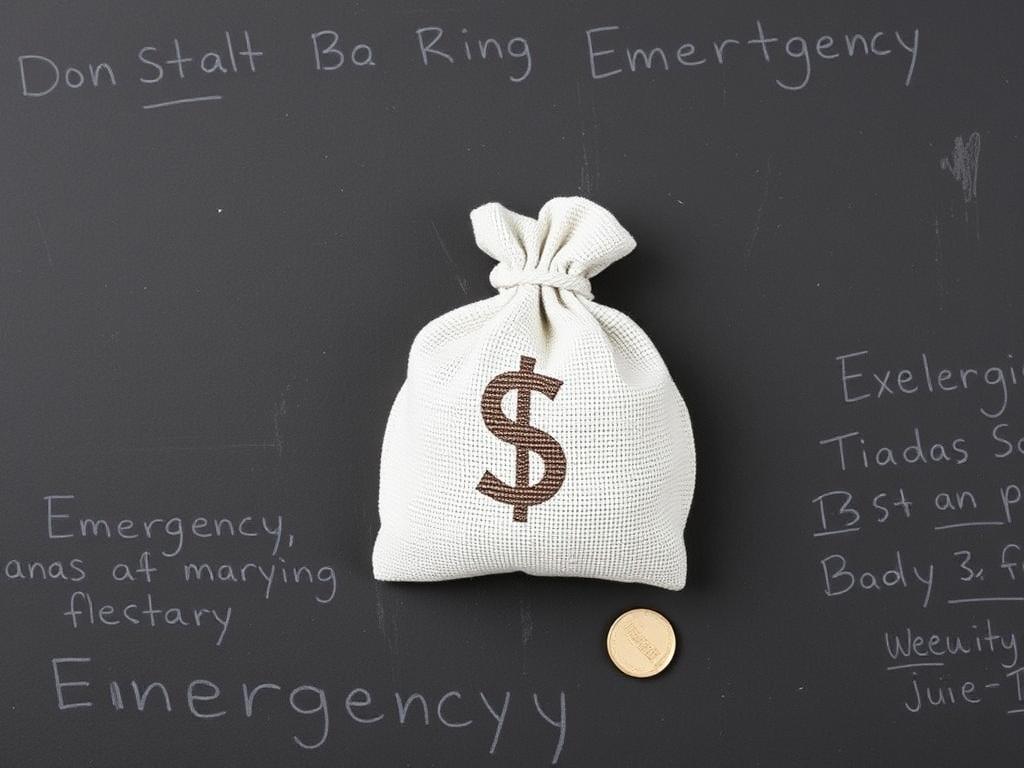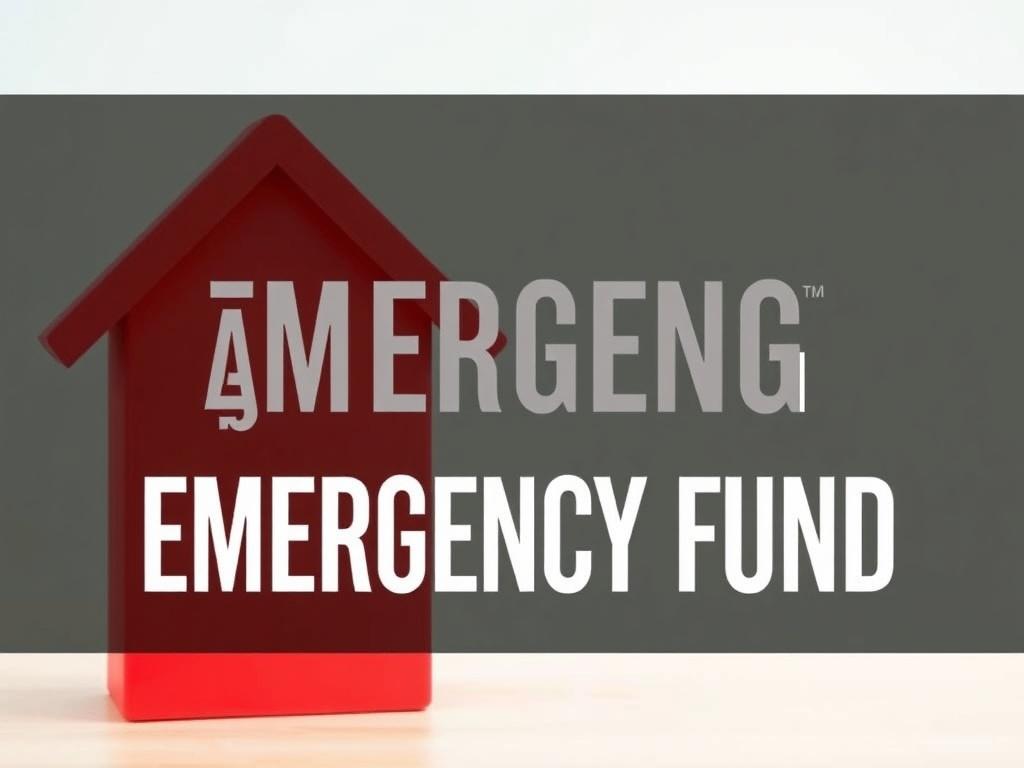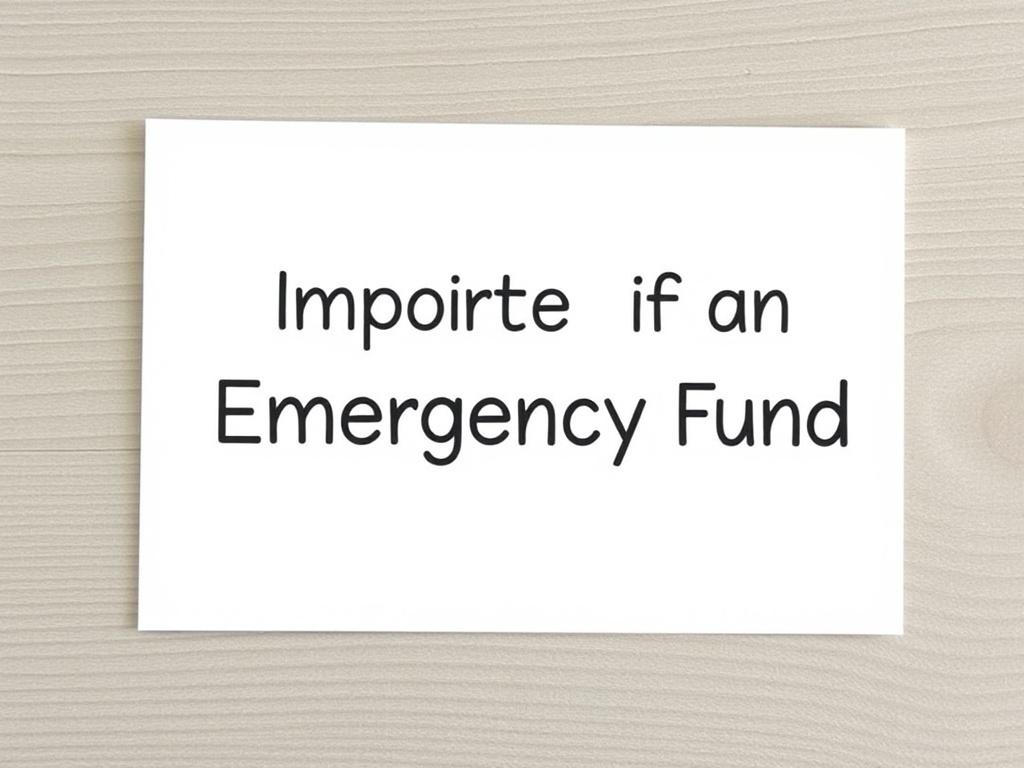SQLITE NOT INSTALLED
Life is full of surprises—some delightful, others challenging. Financial emergencies are among those unwelcome surprises that can throw your life off balance and cause significant stress. Whether it’s a sudden job loss, unexpected medical bill, or urgent car repair, having an emergency fund can be the difference between navigating these difficulties with confidence or struggling under the weight of financial pressure. In this article, we’ll explore why an emergency fund is crucial, how to build one, and how it can help you maintain peace of mind even during tough times.
Содержание
What Is an Emergency Fund?
An emergency fund refers to a stash of money set aside specifically to cover unexpected expenses or financial emergencies. This money is not meant for everyday spending or luxury purchases; instead, it serves as a safety net that provides you with financial stability when unforeseen challenges arise. Ideally, an emergency fund should be easily accessible in a savings account or a similarly liquid form, so you can tap into it quickly without penalties or delays.
Why Is an Emergency Fund Important?

The primary importance of an emergency fund is the financial security it offers. Without one, even minor unexpected costs can disrupt your budget and force you to rely on credit cards or loans, leading to debt that can be difficult to manage. Here are some key reasons why having an emergency fund is so crucial:
- Protects Against Sudden Income Loss: Job security is never guaranteed. An emergency fund can cover your essential expenses such as rent, groceries, and utilities during periods of unemployment or reduced income.
- Prevents Debt Accumulation: Instead of turning to high-interest credit cards or payday loans for urgent cash needs, your emergency fund allows you to pay expenses without borrowing.
- Reduces Financial Stress: Knowing that you have money specifically reserved for emergencies offers peace of mind, helping you stay calm and focused during difficult times.
- Provides Flexibility in Decision Making: When faced with emergencies, having funds ready means you can concentrate on finding solutions rather than immediate financial hurdles.
Common Situations That Require an Emergency Fund
Emergencies come in many forms. Here are some real-life scenarios where an emergency fund can be invaluable:
| Emergency Situation | Why an Emergency Fund Helps |
|---|---|
| Unexpected Medical Expenses | Even with insurance, copays, deductibles, or urgent treatments can be costly. An emergency fund covers these without financial strain. |
| Car Repairs or Replacement | Transportation is essential, and sudden vehicle breakdowns must be addressed immediately to maintain daily life and work. |
| Home Repairs | Issues like a leaky roof, broken heating system, or plumbing failure can be expensive and require prompt attention. |
| Job Loss or Reduced Income | Having a fund to cover living expenses during unemployment gives you time to search for a new role without panic. |
| Unexpected Travel | Emergencies such as family illness may require immediate trips, which a ready fund can finance without disrupting your budget. |
How Much Should You Save in Your Emergency Fund?
One of the most common questions is how large the emergency fund should be. There isn’t a one-size-fits-all answer because everyone’s financial situation varies. However, most financial experts suggest saving between three to six months’ worth of essential living expenses. This amount typically covers rent or mortgage, utilities, groceries, health insurance, transportation, and minimum debt payments.
Factors to Consider When Setting Your Emergency Fund Goal
It’s important to tailor your emergency fund based on your unique circumstances. Consider these factors:
- Job Stability: If your job is secure and in a growing industry, three months’ expenses may be sufficient. If your income is variable or your sector is unstable, aim for six months or more.
- Family Size and Dependents: Families with children or dependents will typically need a larger fund to cover their needs during emergencies.
- Monthly Expenses: Calculate your true fixed and variable expenses to know the exact cushion you need.
- Health and Insurance: If you have significant health concerns or inadequate insurance coverage, a bigger fund offers extra protection.
- Debt Obligations: Higher monthly debt payments demand a larger fund to stay afloat if income stops.
Steps to Build Your Emergency Fund
Building an emergency fund may seem daunting, especially if money is tight. However, with the right strategies and patience, anyone can establish this critical financial safety net. Here’s how to get started:
1. Set a Realistic Goal
Start by determining your target amount based on your monthly expenses and personal circumstances. Breaking the target into smaller, achievable milestones can make saving less overwhelming.
2. Create a Budget
Proper budgeting helps identify where your money goes and shows opportunities for cutting non-essential expenses. This way, you can free up cash to divert into your emergency fund.
3. Open a Separate Savings Account
To avoid the temptation of using your emergency fund for daily spending, keep it in a separate, easily accessible savings account. Minimally, it should be accessible for quick withdrawal in case of emergencies but not so readily available to impulse spend.
4. Automate Your Savings
Set up automatic transfers from your checking account to your emergency fund savings. Even small, regular deposits add up over time and build your fund consistently.
5. Use Windfalls Wisely
When bonuses, tax refunds, or gifts come your way, consider allocating a portion directly to your emergency fund to accelerate growth.
6. Reduce Debt While Saving
Although it may seem tempting to focus only on debt repayment, balancing debt reduction with building an emergency fund ensures you have resources available during unexpected setbacks.
What Not to Use Your Emergency Fund For
An emergency fund is designed for true emergencies—not for everyday expenses or desires. Avoid dipping into this reserve for:
- Vacations or luxuries
- Electronics or gadgets upgrades
- Non-urgent household improvements
- Daily dining or shopping sprees
Preserving the fund exclusively for real emergencies safeguards your financial security and prevents the cycle of borrowing when unexpected costs arise.
Common Myths About Emergency Funds
It’s easy to misunderstand or underestimate the importance of an emergency fund due to some common myths. Let’s debunk these to clarify why prioritizing it is a smart move:
- Myth #1: “I have insurance, so I don’t need an emergency fund.” While insurance helps, it often doesn’t cover all costs or immediate needs, leaving out-of-pocket expenses that your emergency fund can cover.
- Myth #2: “I can just borrow money if something urgent happens.” Borrowing leads to debt and interest payments that add financial stress and delay recovery from an emergency.
- Myth #3: “I don’t make enough to save for emergencies.” Even small, consistent savings add up. The habit of saving is more important than the initial amount.
- Myth #4: “An emergency fund isn’t necessary because I have a steady job.” No job is 100% secure, and even with steady income, unexpected expenses can derail your finances.
Emergency Fund vs. Rainy Day Fund – What’s the Difference?
You may have heard both terms but wondered what sets them apart. A rainy day fund typically refers to money saved for smaller, less urgent expenses such as minor car repairs or minor home maintenance. An emergency fund, on the other hand, is reserved for more significant, unplanned events like job loss or major medical bills. Both are valuable, but the emergency fund specifically addresses more severe financial disruptions.
How to Maintain and Use Your Emergency Fund Wisely
Having an emergency fund is just the beginning. Maintaining and knowing when and how to use it responsibly is equally important.
1. Replenish After Use
If you use your emergency fund, make replenishing it a top priority to restore your financial safety net.
2. Review Periodically
As your life circumstances change—such as an increase in expenses, family size, or job status—reassess your emergency fund size and adjust your savings plan.
3. Avoid Using It for Non-Emergency Needs
Stay disciplined about withdrawals. If you find yourself tempted, try to differentiate between wants and true emergencies.
4. Consider Your Investment Options
While it’s important to keep your emergency fund liquid, putting it in a high-yield savings account or a money market account helps your money grow with minimal risk.
Comparing Emergency Fund Options
Here’s a quick overview of some popular places to keep your emergency money:
| Option | Liquidity | Interest Rate | Accessibility | Risk Level |
|---|---|---|---|---|
| Savings Account | High | Low to Moderate | Immediate | Low |
| Money Market Account | High | Moderate | Immediate | Low |
| Certificates of Deposit (CD) – Short-term | Low | Higher than savings | Penalty if withdrawn early | Low |
| Cash | Highest | None | Immediate | Very Low (but risk of loss or theft) |
Emergency Fund and Your Financial Independence

Having a well-stocked emergency fund is more than just a buffer against financial trouble—it’s a foundational step toward financial independence. When you aren’t living paycheck to paycheck, you gain freedom to make choices that align with your values and goals, whether that’s changing careers, starting a business, or investing for the future. An emergency fund protects your options and empowers you.
Tips for Staying Motivated on Your Emergency Fund Journey

Building an emergency fund is a marathon, not a sprint, and staying motivated can be challenging. Here are some tips to help you stay on track:
- Celebrate small victories when you reach each savings milestone.
- Visualize the stress relief and freedom that your emergency fund will provide.
- Track your progress regularly and adjust your saving strategies as needed.
- Share your goals with a trusted friend or family member for accountability.
- Remind yourself that emergency funds are investments in your peace of mind and security.
Final Thoughts
Conclusion
An emergency fund is a cornerstone of sound financial planning, offering security against life’s inevitable uncertainties. Building and maintaining this fund takes discipline, patience, and smart strategies, but the rewards far outweigh the effort. By safeguarding yourself against unexpected expenses and income disruptions, you reduce stress, avoid debt, and create peace of mind. Whether you’re just starting out or looking to improve your financial health, prioritizing an emergency fund is one of the smartest moves you can make to protect your future and take control of your financial destiny.
Опубликовано: 22 July 2025 Кредитрон – блог о кредитах, финансах и прочих реверансах
Кредитрон – блог о кредитах, финансах и прочих реверансах

